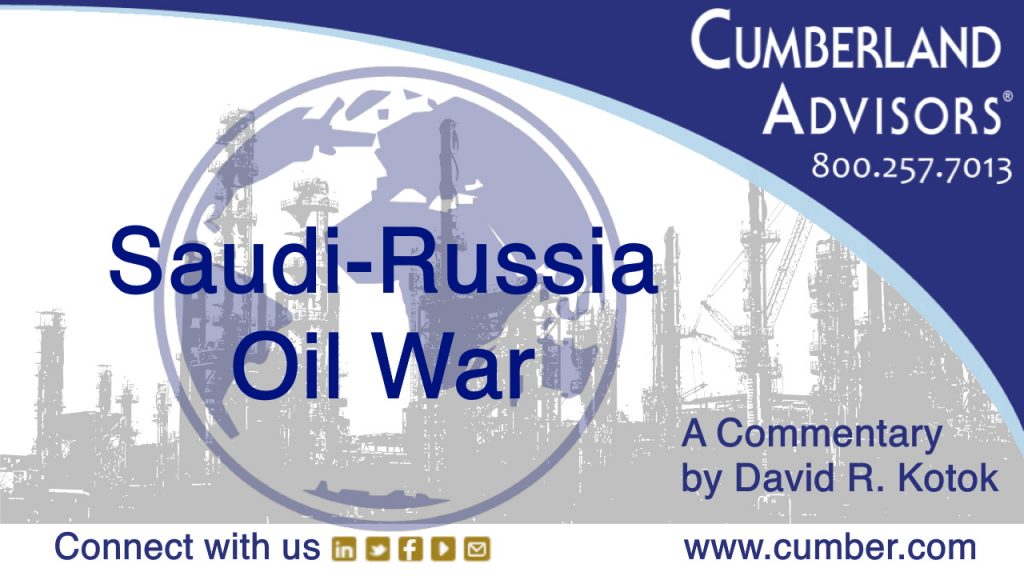A quick note about oil. The Saudi-Russia price war means OPEC disarray and a lower oil price for the US.
The Energy Information Administration (EIA) reports: “In 2019, about 142.23 billion gallons (or about 3.39 billion barrels) of finished motor gasoline were consumed in the United States, an average of about 389.68 million gallons (or about 9.28 million barrels) per day” (https://www.eia.gov/tools/faqs/faq.php?id=23&t=10).
Let’s look at the impact of a price change. If the Saudi-Russia oil price war lasts a year, for the American economy every penny per gallon that the gas price declines will be equivalent to a $1.4 billion consumption tax cut for the American economy. Estimates of the likely gasoline price change now range from a 30–40 cents per gallon cut to a 70–80 cents per gallon cut. No one estimates the price will rise.
A lower price for oil means downward pressure on other fuels and fuel sources. It also means there will be problems with lower-quality credits in the energy sector. Those credit spreads have already been widening, and that process should continue. We expect lower-quality “energy patch” credits to become distressed, and some may default.
At Cumberland, we do not hold these lower-grade energy sector credits. We also screen municipal credits for any exposure to the energy sector that might result in a credit downgrade.
David R. Kotok
Chairman and Chief Investment Officer
Email | Bio


